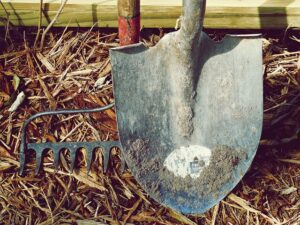2023 has marked a significant shift in Central Victoria's agricultural sector with a notable increase in investments in high-quality, weather-resistant farm sheds. These structures are engineered to stand up to the region's harsh climatic conditions, offering protection against both extreme heat and heavy rainfall. The use of durable materials like galvanized steel and reinforced concrete foundations, along with features such as adjustable vents for temperature control and specialized roofing systems that channel water effectively, ensure these sheds are long-lasting. This durability not only mitigates the impact of unpredictable weather but also extends the shelf life of stored produce and reduces economic losses due to spoilage. The strategic design of these farm sheds, which includes proper insulation, ventilation systems, and eaves for protection against precipitation, aligns with the needs of Central Victoria's farmers who aim to maintain productivity regardless of weather challenges. These enhancements not only protect crops and livestock but also support the sustainability and economic resilience of local farming operations. The adoption of these advanced farm sheds represents a pivotal move by farmers in Central Victoria towards adopting modern, efficient, and adaptable agricultural practices that are essential for coping with the demands of climate variability and ensuring long-term success in the industry.
Central Victoria’s diverse agricultural sector thrives amidst a dynamic climate, necessitating robust solutions for crop protection. The advent of weather-resistant farm sheds has emerged as a pivotal innovation in this region, offering a secure environment for year-round agricultural activities. This article delves into the transformative impact of these structures on maximizing crop yields, exploring design and material considerations essential for withstanding Central Victoria’s unpredictable weather patterns. Investing in high-quality farm sheds not only fortifies crops against adverse conditions but also represents a strategic asset for agricultural businesses. Through detailed case studies, witness firsthand the positive effects these structures have had on the local agriculture industry’s resilience and productivity.
- Maximizing Crop Yields: The Role of Weather-Resistant Farm Sheds in Central Victoria
- Design and Material Considerations for Durable Farm Sheds Amidst Central Victoria's Climate
- Advantages of Investing in High-Quality Weather-Resistant Farm Sheds for Agricultural Businesses
- Case Studies: Successful Farm Shed Implementations and Their Impact on Central Victoria's Agriculture Industry
Maximizing Crop Yields: The Role of Weather-Resistant Farm Sheds in Central Victoria
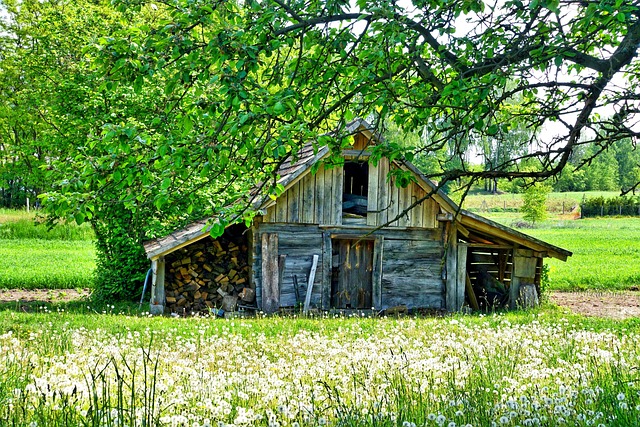
In Central Victoria’s agricultural heartland, where the variability of weather patterns can significantly impact crop yields, the implementation of robust and resilient farm sheds has become a cornerstone for securing produce against the elements. These weather-resistant farm sheds are designed to withstand the region’s harsh conditions, from scorching summer heatwaves to frosty winter nights. Their durability ensures that crops stored within remain protected, free from damage that could result from sudden storms or hail. As a result, these structures not only safeguard the agricultural output but also provide an environment where produce can mature to its fullest potential, maximizing yield and quality. The strategic placement of these sheds on farms across the region allows for year-round crop management, optimizing storage conditions to extend the life of fruits and vegetables, and minimizing spoilage. This not only enhances the economic viability of local farming operations but also contributes to a more stable food supply chain for Central Victoria.
Farmers in Central Victoria are increasingly recognizing the importance of integrating weather-resistant farm sheds into their operations. These sheds are engineered with high-grade materials, such as galvanized steel and reinforced concrete foundations, ensuring longevity and resistance to the elements. Additionally, the design often incorporates features like adjustable vents for temperature control and robust roofing systems that redirect water flow away from the structure during heavy rains, further enhancing their protective capabilities. By leveraging these modern farm sheds, local producers can effectively manage the storage and maturation of crops, leading to higher yields and better-quality produce that can withstand the journey to market. This investment in infrastructure not only adapts to the challenges of Central Victoria’s climate but also positions farmers to capitalize on the favorable conditions when they arise.
Design and Material Considerations for Durable Farm Sheds Amidst Central Victoria's Climate
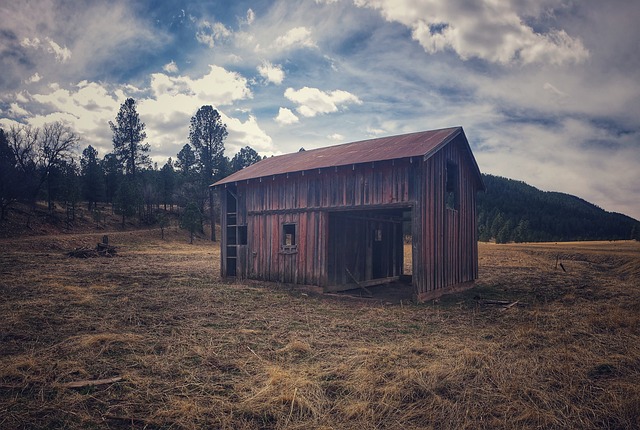
In Central Victoria, where the climate is characterized by a wide range of weather conditions, from harsh, dry summers to unpredictable rainfall in autumn and winter, designing durable farm sheds requires careful consideration. The design and material selection for these structures are pivotal to ensure longevity and functionality. Farmers and agricultural businesses must prioritize materials that can withstand the elements while maintaining structural integrity. Steel remains a popular choice due to its resistance to rust and corrosion, which is particularly important in areas prone to high humidity and fluctuating temperatures. Additionally, the use of high-tensile bolts and properly galvanized fasteners is essential to prevent loosening and weathering over time.
The orientation and slope of the roof play a critical role in channeling water away from the building, minimizing the potential for leaks and water damage. Adequate insulation is also necessary to protect stored goods from extreme temperatures, ensuring that perishable items or sensitive equipment can endure the climate year-round. Moreover, the design should incorporate ample ventilation to mitigate heat buildup during the hotter months. Incorporating wide eaves or overhangs not only enhances the shed’s aesthetics but also provides additional protection against rain and snow. By carefully considering these factors, farm sheds in Central Victoria can be constructed to endure the region’s diverse weather patterns and provide a reliable storage solution for local farmers and businesses.
Advantages of Investing in High-Quality Weather-Resistant Farm Sheds for Agricultural Businesses
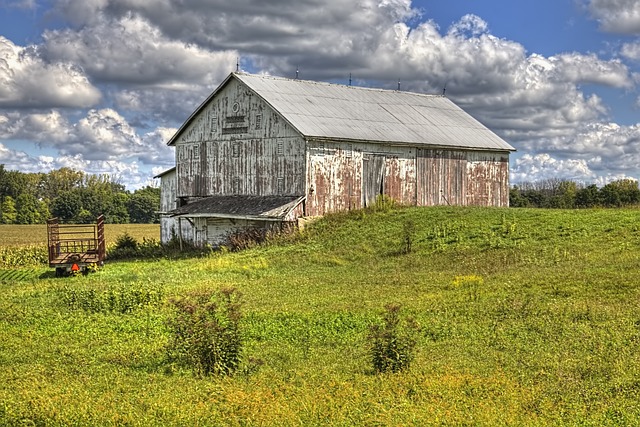
High-quality weather-resistant farm sheds represent a sound investment for agricultural businesses in Central Victoria, where the climate can be both challenging and unpredictable. These structures are engineered to withstand a range of weather conditions, from harsh sun and extreme heat during the summer months to heavy rains and high winds that can occur throughout the year. By safeguarding equipment, crops, and livestock from the elements, these sheds protect assets and maintain productivity, which is crucial for the continuous operation of agricultural enterprises. Moreover, the durability and longevity of weather-resistant farm sheds mean fewer maintenance costs and less downtime over their extensive service life. This resilience translates to a lower total cost of ownership, making them an economically viable option for farmers who prioritize both sustainability and functionality. Additionally, these structures often come with features that facilitate efficient use of space, such as adaptable designs and robust construction materials, which contribute to their utility in various agricultural applications, from grain storage to housing animals. Investing in weather-resistant farm sheds not only ensures the protection of valuable assets but also contributes to the long-term viability of Central Victoria’s farming sector.
Case Studies: Successful Farm Shed Implementations and Their Impact on Central Victoria's Agriculture Industry
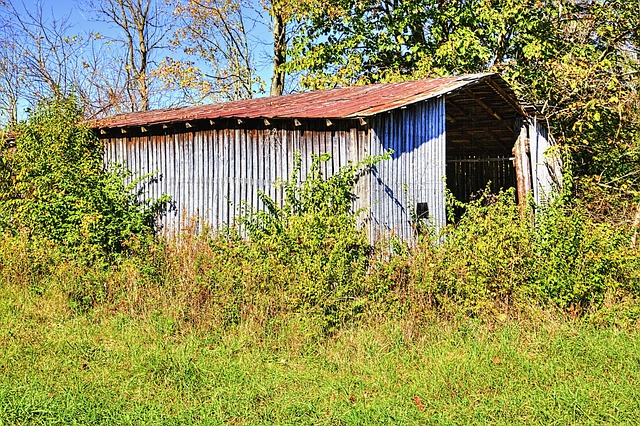
In recent years, farm shed implementations in Central Victoria have undergone a significant transformation, with weather-resistant designs playing a pivotal role in enhancing agricultural productivity. Case studies of successful farm shed installations reveal a marked improvement in crop yield stability and livestock well-being due to the robust nature of these structures. For instance, a local dairy farm retrofitted its existing sheds with advanced weatherproof materials, significantly reducing milk loss during severe weather events. Similarly, a horticultural enterprise adopted new shed designs that incorporated optimal ventilation and insulation, leading to a year-round extension of the growing season and a notable increase in produce output. These advancements not only bolster the resilience of individual farms but also contribute to the overall economic vitality of Central Victoria’s agriculture sector by ensuring continuous operation regardless of climate fluctuations. The adaptability of these farm sheds, designed to withstand the region’s diverse weather conditions, underscores their importance in modern agricultural practices and their potential to shape the future of farming in Central Victoria. Farmers are increasingly recognizing the value of investing in such infrastructure, as evidenced by the growing number of farms adopting these innovative weather-resistant shed solutions.
In conclusion, the deployment of farm sheds in Central Victoria’s agricultural sector is a strategic investment that fortifies against the unpredictable elements, ensuring the protection and maximization of crop yields. The design and material choices for these structures are critical for their longevity and effectiveness, particularly when considering the region’s diverse weather patterns. The case studies presented underscore the tangible benefits reaped by local farmers who have adopted robust weather-resistant farm sheds, highlighting an uptick in productivity and profitability. As the industry continues to evolve, embracing these structures is not just a response to environmental challenges but a proactive measure for sustainable growth within Central Victoria’s farming community.
